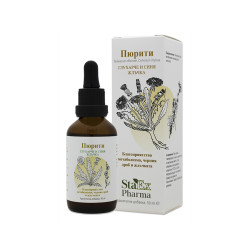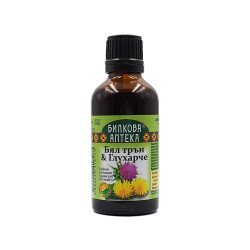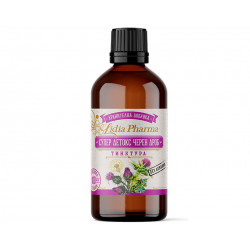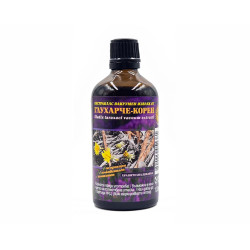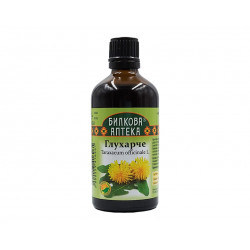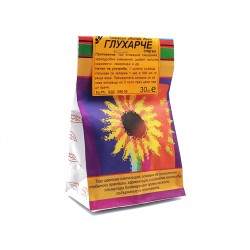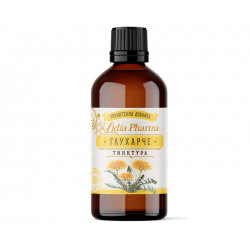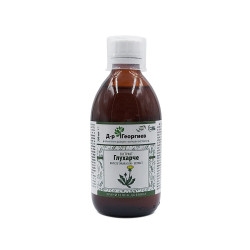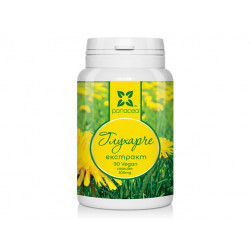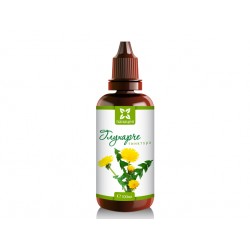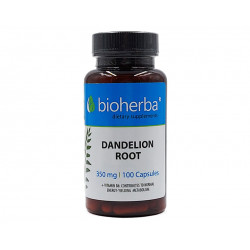Dandelion (Taraxacum officinale) is also called radica. It belongs to the Asteraceae (Compositae) family. Dandelion belongs to the Lactucaceae subfamily, because of the plant latex contained in it, and the Latin name Taraxacum comes from ancient Greek - "inflammation of the eye", because in the past eye inflammations were treated with it.
1000 species of dandelions around the world
The dandelion grows all over the world - about 1000 species of dandelions grow on earth. In Bulgaria, it is found in meadows and grassy places, abandoned lands, by streams, on sands and pebbles, from sea level to a height of 2000 m above sea level. In the whole country.
Dandelion owes its widespread distribution to its great fertility and its unpretentiousness. One flower produces over 200 seeds, which like parachutes are carried everywhere by the slightest breeze. These seeds are intercepted throughout the year - from spring to autumn. The plant has unparalleled adaptability and power of survival - people and animals eat it - it grows; they trample it - it grows again. It grows in the shade and in the sun. It survives the dry summer heat - its leaves are small and shrink to evaporate less water, and in high humidity they become large.
The leaves are arranged so that the moisture on them flows straight to the root. The dandelion prepares for the winter cold since late autumn - its root twists around its axis, reduces its volume and goes deep.
At night and in bad weather, its petals close and protect the flower, and in the morning and in good weather they open again. The dandelion survives and if the plant is cut above the root, it grows again, even several plants grow from one root. This is the most difficult plant to weed.
Dandelion is rich in nutrients and biologically active substances. The leaves contain proteins and carbohydrates, flavonoids, vitamins, trace elements, etc. Dandelion is rich in vitamins - the leaves and flowers contain carotene - provitamin A, vitamin C - up to 100 mg%, vitamin P - up to 30 mg%, B vitamins, vitamin D.
The milky juice of the dandelion contains the bitter substance taraxacin. Dandelion roots contain inulin, sugars, protein substances, fats, sterols, saponins, organic acids, triterpene compounds, etc.
The macro and micronutrients in dandelion are varied. The amount of phosphorus reaches 350 mg%, of calcium - 1420 mg%, of iron - 7 mg%, of copper - 1 mg%, of boron - 4.8 mg%, of nickel - 0.03 mg%, of manganese - 2.7 mg%, on titanium - 1 mg%.
It also contains vanadium, tin, strontium, cadmium and zinc. The amount of these elements depends strongly on the soil on which the dandelion grows and on the surrounding pollution.
Use as food
In some countries, dandelion is grown as a crop for culinary purposes. All parts of the plant can be used for food - flower buds, flowers, leaves, basal leaf rosettes and roots. Dandelion can be used to prepare salads, soups, dishes, marmalades, jams, purees and drinks.
Roasted roots are considered a delicacy and can be used alone or as a side dish and condiment. From them, after roasting, a substitute for coffee is prepared.
An obstacle to the use of dandelion as food is its bitter taste. There are several ways to remove it:
1. soaking the leaves in salted water for 20-30 minutes;
2. boiling for 3-5 min;
3. placing the leaves in the dark directly on the ground, under a stone or under a tree for an hour.
If the leaves are mixed with the other ingredients when preparing a salad, salted and the salad is left to stand for 20-30 minutes, the bitterness disappears. When the roots are boiled in salted water, it is not necessary to pre-treat them in a salt solution.
The roots are collected in autumn and summer, and the leaves around the flowering - in spring and early summer. After collection, they are dried and stored in cool and dry rooms, away from direct sunlight. It is not recommended to collect them in urban places and yards, as they accumulate poisonous substances from the environment.
Where to buy Dandelion products?
You can find dandelin products, including dry herb, capsules, tincture, etc in "Zdravnitza".
You can place your order online. We deliver our products to products in Bulgaria, Europe, USA, Canada, Australia, Israel and Thailand.
You can also buy Dandelion products on the local stores of "Zdravnitza":
Health store "Zdravnitza"
1000 Sofia, Bulgaria
23 Neofit Rilski str.
Health store "Zdravnitza"
1303 Sofia, Bulgaria
74 Odrin str.




